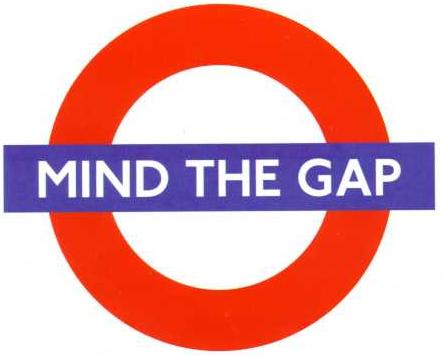トップページ
| お気に入りのジョーク (My Favorite Jokes) |
 |
|---|---|
どうぞ笑ってください。
<ロシアからのジョーク>
|
A man flying on a balloon has found that he has got lost. He took the balloon a bit lower and saw a woman on the ground. He asked her: -- Sorry could you help me? I made an appointment with my friend an hour ago but I don’t know where I am. -- You’re on a balloon, 30 feet above the surface and your coordinates are 40 to 41 and 59 to 60. -- You must be a programmer. -- Right, how did you guess? -- You gave me an absolutely precise answer, but I don’t know what to do with this information and I’m still lost. -- And you’re probably a manager? -- Yes, how did you know that? -- You don’t know where you are and where you’re going. You got to where you are because of air. You gave a promise you couldn’t keep, and expect people who are below you to solve your problems. And finally, you are in the same situation as you were before you met me, but somehow now it’s my fault.
|
|
<中島仮訳> 気球に乗った男が、道に迷ったことに気がついた。彼は、気球の高度を少し下げて、地上にいる女性を見つけた。 彼は、彼女に尋ねた: −済まないが、ちょっと助けてくれないか? 私は、1時間前に友達と会う約束をしたんだが、自分がどこにいるのか分からなくなってしまったんだ。 −あなたは、気球に乗っていて、地上30フィートの上空にいます。そして、あなたの座標は、40〜41と59〜60よ。 −う〜ん、君は、プログラマーに違いない。 −その通りよ。どうして分かったの? −君は私にすごく正確な答をくれた。でも、私にはその情報をどう使ったらよいか分からない。そして、私は迷ったままだ。 −そういうあなたは、きっとマネージャーでしょう? −その通りだ。どうして分かったんだ? −あなたは、自分がどこにいるか、そしてどこに行こうとしているかが分かっていないわ。あなたの行き先は風任せよ。そして、あなたは守れもしない約束をして、部下があなたの問題を解決してくれると思っているわ。そして最後に、あなたは、私に会う前と同じところにいるけれど、なんだかそれが私のせいのような気がするのよ。 |
| <コメント> BIS時代に、同僚がロシア人から送られてきたといって転送してくれました。 じわじわとおかしさがこみ上げてくるジョークです。 最後のプログラマーの発言が痛快です。 上司を持った経験のある人なら、必ずうなずけるはず....。 |
<森首相とクリントン大統領>
|
Prime Minister Mori was given some basic English conversation training before he visits Washington and meets with President Bill Clinton. The instructor told Mori " Prime Minister, when you shake hand with President Clinton, please say 'how are you'. Then Mr. Clinton should say "I am fine, and you ?" Now you should say 'me too'. Afterwards we translators will do all the work for you." It looks quite simple, but the truth is ... When Mori met Clinton he mistakenly said "Who Are You ?". Clinton was a bit shocked but still managed to react with humor : "Well, I am Hilary's husband, ha ha..." Then Mori replied confidently "Me too, ha ha ha.." |
|
<中島仮訳> 森首相は、ワシントンを訪問し、クリントン大統領に会うにあたって、簡単な英会話についてのレクチャーを受けた。 森首相の通訳は、森首相に次のように説明した。 「首相、クリントン大統領と握手をするときには、“ハウ・ワー・ユー”(ご機嫌いかがですか)と言ってください。 とても簡単そうに見えたのだが、実際には.... 森首相がクリントン大統領に会ったとき、首相は間違えて「フー・アー・ユー」(お前は誰だ?)と聞いてしまった。 クリントンは、ちょっと驚いたが、すかさずジョークにして返した。 すると、森首相は自信満々にこう答えた。 |
|
<コメント> どうも本当にこんなことがあったのではないかと思わせるくらい良くできたジョークである。 当時、私が聞いたバージョンでは、G7で森首相がクリントンに始めて会った時の会話ということになっており、「このあと、クリントン大統領は、森首相に一切話しかけなくなってしまった」というオチが付いていたのだが....。 |
<過去の恋愛について>
男は「名前を付けて保存する」を選択するが、 女は「上書き保存する」を選ぶ。 |
| <コメント> あまりにも、言い得て妙だったので、納得してしまいました。 男は、昔の恋愛を大事に思い出としてとっておく。 一方、女姓は、現実的で、今の恋愛がすべて、ということでしょうか。 |
<マヨネーズの瓶と二杯のコーヒー>
When things in your life seem almost too much to handle, when 24 hours in a day are not enough, remember the mayonnaise jar and the two cups of coffee. ---------------------------------------------------------------------- 忙しい毎日の生活に追われ、一日24時間では足りないと感じるとき、 このマヨネーズの瓶と二杯のコーヒーの話を思い出してください。 ---------------------------------------------------------------------- A professor stood before his philosophy class and had some items in front of him. When the class began, wordlessly, he picked up a very large and empty mayonnaise jar and proceeded to fill it with golf balls. He then asked the students if the jar was full. They agreed that it was. ---------------------------------------------------------------------- ある一人の哲学の教授は立ち上がり、自分の目の前にあるいくつかのものを 持って授業に出た。 クラスが始まると、何も言わずに大きな空っぽのマヨネーズの瓶を取り出し、 その中にゴルフのボールを入れ、いっぱいにした。 そして、学生たちにこの瓶はいっぱいかと聞いた。 学生は「いっぱいです。」と答えた。 ---------------------------------------------------------------------- The professor then picked up a box of pebbles and poured them into the jar. He shook the jar lightly. The pebbles rolled into the open areas between the golf balls. He then asked the students again if the jar was full. They agreed it was. ---------------------------------------------------------------------- それから、教授は小石の入った箱を取り出し、瓶の中に入れ始めた。 瓶を軽く振った。 小石はゴルフボールの間に詰まっていった。そして、また学生たちに この瓶はいっぱいかと聞いた。学生は「いっぱいです。」と答えた。 ---------------------------------------------------------------------- The professor next picked up a box of sand and poured it into the jar. Of course, the sand filled up everything else. He asked once more if the jar was full. The students responded with a unanimous "yes". ---------------------------------------------------------------------- 次に、砂の入った箱を取り出し、瓶の中に入れた。もちろん砂はスキマに 詰まっていった。 そしてもう一度、学生たちにこの瓶はいっぱいかと聞いた。 学生は全員「はい。」と答えた。 ---------------------------------------------------------------------- The professor then produced two cups of coffee from under the table and poured the entire contents into the jar, effectively filling the empty space between the sand. The students laughed. ---------------------------------------------------------------------- 教授はさらに二杯のコーヒーを取り出し、瓶に注ぎ、砂の間のスキマ全てを コーヒーでいっぱいにした。学生たちは笑い出した。 ---------------------------------------------------------------------- "Now," said the professor, as the laughter subsided, “I want you to recognize that this jar represents your life.” ---------------------------------------------------------------------- 笑いが途切れるのを待ち教授は言った。「さて、君たちにこの瓶は 君たちの人生だと気づいてほしい。」 ---------------------------------------------------------------------- The golf balls are the important things in life. Your God, your family, your children, your health, your friends, and your favorite passions: things that if everything else was lost and only they remained, your life would still be full. ---------------------------------------------------------------------- ゴルフボールは人生の中で大切な物、たとえば、君の信じる神、家族、 子供たち、健康、友達そして何か君が熱くなれる事、全てのものを 失ったとしても、それらさえあれば、君の人生が充実するものなどだね。 ---------------------------------------------------------------------- The pebbles are the other things that matter like your job, your house, and your car. ---------------------------------------------------------------------- 小石はそのほかの物、たとえば、仕事、家、車とかね。 ---------------------------------------------------------------------- The sand is everything else: the small stuff. ---------------------------------------------------------------------- 砂はその他の物、日常的にやっている細々とした事。 ---------------------------------------------------------------------- "If you put the sand into the jar first," he continued, "there is no room for the pebbles or the golf balls. The same goes for life. If you spend all your time and energy on the small stuff, you will never have room for the things that are important to you. Pay attention to the things that are critical to your happiness. Play with your children. Take time to get medical checkups. Take your partner out to dinner. Play another 18. There will always be time to clean house and fix the disposal. ---------------------------------------------------------------------- 教授は話を続けます。もし、君が砂を最初に瓶に入れてしまったら、小石や ゴルフボールの入る隙間がなくなるでしょう。人生も同じことですよ。 もし君の時間を些細な事に費やしてしまったら、大切なことに使う時間が なくなってしまう。 何が自分の幸せに必要なことなのか注意しなければいけない。 子供と遊びなさい。健康診断に行きなさい。あなたの連れ合いと 外食に行きなさい。18歳だったときのように遊び心を持ちなさい。 家の掃除をしたり、ガラクタの始末はいつでも出来るんだから。 ---------------------------------------------------------------------- Take care of the golf balls first; the things that really matter. Set your priorities. The rest is just sand. ---------------------------------------------------------------------- 自分にとって、もっとも大切なもの、ゴルフボールをまず大切にしなさい。 優先順位を付けるんです。そのほかの物は全て、砂ですから。 ---------------------------------------------------------------------- One of the students raised her hand and inquired what the coffee represented. The professor smiled. "I'm glad you asked. It just goes to show you that no matter how full your life may seem, there's always room for a couple of cups of coffee with a friend." ---------------------------------------------------------------------- 生徒の1人が手を挙げ、コーヒーは何を表しているのですかと聞いた。 教授は微笑んで「聞いてくれてありがとう。それはね、人生がどんなに忙しく、 余分な時間なんて無いように感じても、友達とコーヒーを飲む時間は いくらでも作れるもんだ、ということなんだよ。 ---------------------------------------------------------------------- |
| <コメント> これは、ジョークではないのですが、なかなかよい話ですね。 |
| 「食事の前に言う言葉」 欧州では、食事を始める前に言う言葉がある。 フランス、ドイツ、イタリアでは、テーブルに、ワイン、ビールや御馳走がならんでいる。 食事を始める際に、フランス人は ”Bon appetit!”(直訳:よい食欲を!)という。 そして、ドイツ人は “Guten appetit!”(同じ意味)という。 また、イタリア人は “Buon appetito!”(同じ意味)という。 しかし、イギリスの食卓に並んでいるのは、缶詰、インスタント食品、ケチャップなどである。 イギリス人は、 ”Never Mind!”(気にするな!)と声を掛け合っているという。 つまり、「まずくても、気にするな」という意味である。 |
|---|
| 「ふとし君といぬ」 父兄参観に行ったとき、張り出されてあった図画に、 「太」(ふとし)君は、自分の名前を「犬」(いぬ)と書いていた。 点をつける位置が、ちょっとばかり違っている(意味は大きく違う!) ふとし君は4年生だ。大丈夫だろうか....? |
|---|
| ロンドンの地下鉄 名古屋出身のトヨタ氏がロンドンの地下鉄の駅で電車を待っていると、「満員だぎゃ-」、「満員だぎゃー」というなつかしい名古屋弁が聞こえました。 トヨタ氏は、「ああ、次の地下鉄は満員なんだな」とぼんやり思いながら聞いていました。 しかし、なぜ、ロンドンの地下鉄で名古屋弁が...? 実は、これは、「Mind the Gap」(車両とホームの間が開いていますので、お気を付けください)といっているのでした。 |
 |
|---|---|
| <コメント> この話、名古屋の人には大うけです。 ちなみに、この言葉は結構有名で、ロンドンの地下鉄の売店では、「Mind the Gap Tシャツ」を売っています。お土産にぜひどうぞ。 |
|